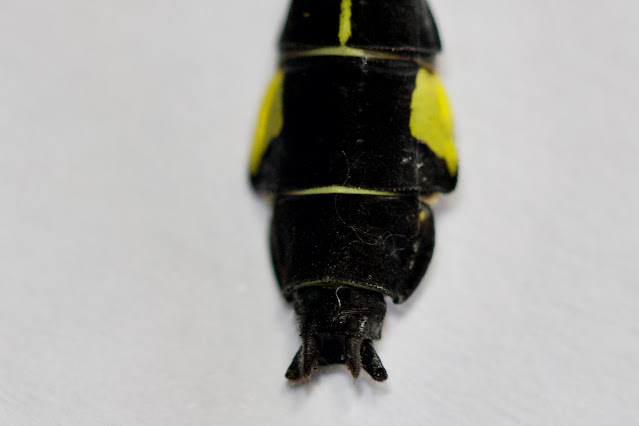Family Gomphidae
Anisogomphus bivittatus
Selys 1854
Elevation 700 to 2800m
Abdomen length 36mm
There are three species of Anisogomphus in Nepal, and all three have been reported in the Godavari area but I have only seen A. orites outside of Pokhara on the Mardi Khola. Males of A. bivittatus differ from A. occipitalis in that it has expansions on the last 3 segments of the abdomen giving it a vase-like appearance. Females are similar to males. The photo below shows this feature very nicely. They are locally common sitting on small bushes next to small streams in May through September. They have a narrow distribution found only in Nepal and NE India.
Male



Female

Anisogomphus occipitalis
(Selys 1854)
Elevation 400 - 1800m
Abdomen Length 52mm
Location Godavari, Pokhara
Location Godavari, Pokhara
Male




Female

Laidlaw 1922
Elevation 900 - 1500m
Abdomen Length 31mm
Location Mardi Khola Pokhara
This species is separated from its close and very similar in appearance relative to A. occipitalis (see below). The shape of the anal appendages, the long spines on the femora, and fewer yellow markings along the abdomen - the last three segments are black and slightly expanded laterally. It was found sitting on a rock above the Mardi Khola (River). No females were seen. The date was early October. It has only been recorded in Nepal and NE India - Assam and Sikkim.
Male







No comments:
Post a Comment